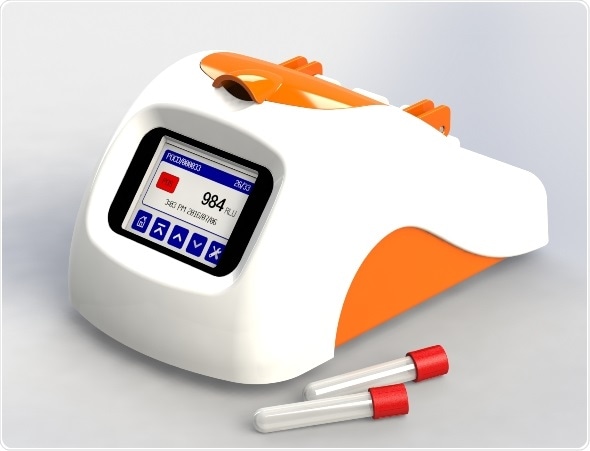Mar 19 2018
Vitl Life Science Solutions, a member of the ITL Group, announce the highly-anticipated launch of the Lu-mini – a new product set to revolutionize the market for low-cost OEM benchtop luminometers.

The Kent-based company has taken an innovative approach in the design of the Lu-mini; putting a modern spin on the traditional analytical instruments which have been occupying valuable bench space for decades.
Tom Ackrill, Business Development Manager for Vitl Life Science Solutions, said:
We are delighted to be unveiling our brand-new product, the Lu-mini, at analytica in April 2018; taking an essential piece of laboratory kit, and giving it a Vitl twist.
Vitl Life Sciences is a global pioneer in the design, development and manufacture of high-end laboratory and analytical instruments, successfully combining practical and affordable functionality that not only delivers for customers, but looks great too.
With the Lu-mini, we have designed a luminometer that has been engineered using the latest technologies to provide researchers with everything they need to get the job done – quickly and accurately.
Steve Hope, New Product Development Manager added:
In common with previous instruments designed for the Vitl range, the motivation behind the Lu-mini was to develop an instrument that combines usability and a modern, compact design while assuring class-leading performance.
Our aim is to deliver products that encompass innovation, quality and ergonomics, and the Lu-mini does just that. We’re looking forward to showcasing its full potential at analytica 2018.
The unique design of the sample chamber allows the use of a range of vessel sizes, including 10-15mm round vials and 10mm square cuvettes.
In comparison to luminometers on the market today; which would require additional modules to accommodate varying vessel sizes, the Lu-mini is able to hold vessels varying in shape and length without the need for additional adapters; holding the sample repeatedly in the same place during multiple insertions.
During its development, Vitl opted to use a solid-state detector, as opposed to a Photomultiplier Tube (PMT), removing the need for a traditional power supply and replacing it with external power and communications from a USB interface.
Accompanied by an associated PC app, which offers added functionality of data storage and sample tracking; including barcoded samples, if required. This provides OEM customers with the flexibility to incorporate the reader into their workflow for IVD systems.
The full range of features, includes:
- Accepts 10 -15mm round vials and 10mm square cuvettes
- Fast reading time with optional integration phase
- Versatile protocol selection including single/dual point, peak detect and kinetic data collection
- Storage capacity for up to 1,000 test results
- USB connectivity for sample/results data transfer and configuration via included PC app
- Intuitive touchscreen user interface, allowing OEM partners to utilise their own reagents, disposables and protocols.
- For OEM partners the Lu-mini software can be fully customised to meet your requirements.
Interested in finding out more about Lu-mini? Visit Hall A3, Stand 115 at analytica 2018 in Munich to try it for yourself or visit www.vitlproducts.com for more information.